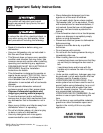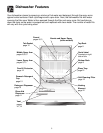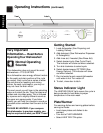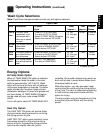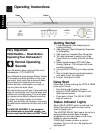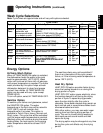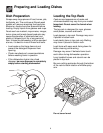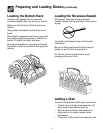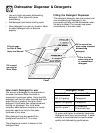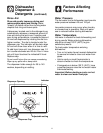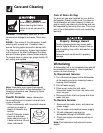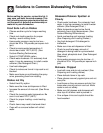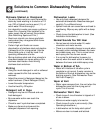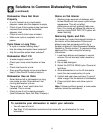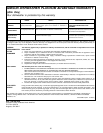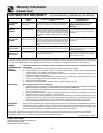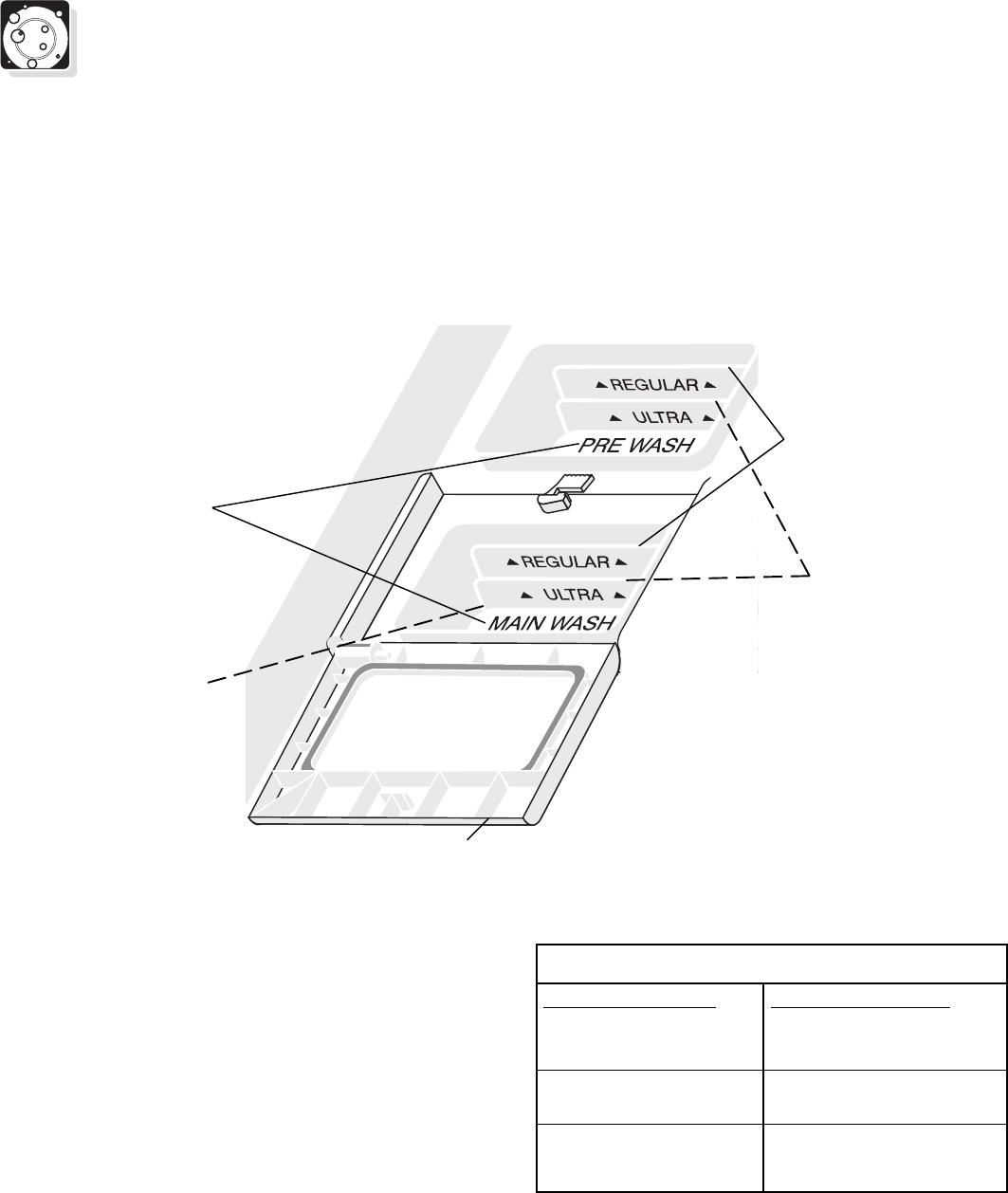
10
Dishwasher Dispenser & Detergents
• Use only fresh automatic dishwashing
detergent. Other types will cause
oversudsing.
• Add detergent just before starting cycle.
• Store detergent in a cool, dry location. Moist
or caked detergent will not dissolve
properly.
Filling the Detergent Dispenser
The detergent dispenser has one covered and
one uncovered cup. Detergent in the
uncovered cup falls into the dishwasher when
the door is closed. The covered cup opens
automatically in the main wash.
Detergent Chart
Amount per Cup
2 Teaspoons
5 Teaspoons
10 Teaspoons
(fill level with top)
Water Hardness
Soft (0-3 grains)
Medium (4-8 grains)
Hard (9+ grains*)
* 12 grains and higher is extremely hard water.
Detergent alone may not be enough. A water
softener is recommended to improve water
quality and dishwashing performance.
How much Detergent to use
The amount of detergent to use depends on
the water hardness. Water hardness is
measured in grains per gallon. Using too little
detergent can result in poor cleaning and hard
water filming or spotting. Using too much
detergent in soft water can cause permanent
etching on glassware. Your local water
company, water softener company or county
extension agent can tell you the water
hardness in your area.
More detergent may be needed if the
phosphorus content is 8.7% or less.
The phosphorus content is shown on the
detergent label.
Cover
Fill to second line
when using standard
dishwashing
detergent.
Fill to first line
when using ultra
or concentrated
detergent.
Fill covered
cup only for
Short Wash.
Fill both cups
for Pots & Pans,
Heavy and Normal.



